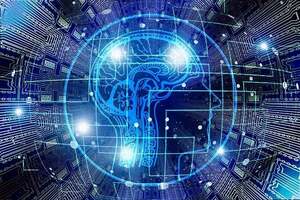Explore
Journalism in the Digital Age
Newspapers and print journalism in the digital age have changed dramatically from their roots. Once the...
Harmful 5G Fast Lanes Are Coming; the FCC Needs to Stop Them
The FCC is set to vote on April 25 to restore its authority over the companies...

Why Large Language Models Like ChatGPT Treat Black- and White-Sounding Names Differently
Link URL: https://hai.stanford.edu/news/why-large-language-models-chatgpt-treat-black-and-white-sounding-names-differently Comments URL: https://tildes.net/~tech/1fj6/why_large_language_models_like_chatgpt_treat_black_and_white_sounding_names_differently Votes: 8 Comments: 6

LSST Camera: largest camera for astronomy
Ranked as the top ground-based national priority for the field for the 2010s, the Vera C....
The IT Productivity Paradox
Perhaps we should start by first defining what IT really is. According to the Information Technology...

Pilot study shows ketogenic diet improves mental illness
In the four-month pilot trial, Sethi’s team followed 21 adult participants who were diagnosed with schizophrenia...

Deceit, Desire, and the Literature Professor: Why Girardians Exist
Mr. Casaubon called the future volumes . . . the Key to all Mythologies. —George Eliot,...

Unlocking the Secrets of Myelin Repair
New research from scientists at the Wu Tsai Neurosciences Institute at Stanford University has identified a...

Spotting Visual Signs of Gentrification at Scale
Link URL: https://hai.stanford.edu/news/spotting-visual-signs-gentrification-scale Comments URL: https://tildes.net/~tech/1f6i/spotting_visual_signs_of_gentrification_at_scale Votes: 9 Comments: 2

High-speed microscale 3D printing
The 3D-printed DeSimone lab logo, featuring a buckyball geometry, demonstrates the r2rCLIP system’s ability to produce...

Our bacteria are more personal than we thought, Stanford Medicine-led study shows
The data turned up another surprise: The microbiomes in different places in the body were highly...










